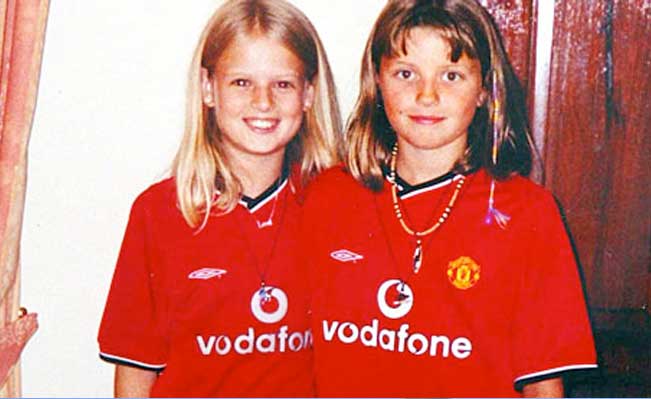 The vetting and barring scheme was introduced following the murders of Jessica Chapman and Holly Wells, who disappeared from Soham on 7 August 2002. Photograph: PA
The vetting and barring scheme was introduced following the murders of Jessica Chapman and Holly Wells, who disappeared from Soham on 7 August 2002. Photograph: PA
The Vetting and Barring Scheme raises serious questions, but doesn’t seek to answer how we can really tackle child abuse, with increased funding to services being the minimum needed if we are to ever protect children
The Vetting and Barring Scheme (VBS) is a compulsory national database requiring those in ‘frequent’ professional contact with children to register their details.
It will become the largest system of it’s kind in the world, with the aim to hold up to 11.3 million names within 5 years.
Leading children’s authors say they will refuse to register when the scheme is launched in October because it assumes guilt until innocence is proven (and somehow insults their professional integrity). Although most of us will not be able to exercise the same opposition it renders the question- will it really protect children?
The VBS is run by the Independent Safeguarding Authority, which was set up following the 2002 Soham murders. Any adult who has professional or voluntary contact with children or vulnerable adults once a month or more will have to register on the database. When registering the individual is vetted; if accepted the individual is ‘continuously monitored’ and if barred the person faces criminal penalties if they then seek to work with vulnerable groups.
To some this could seem like a sound way of safeguarding children until the details of the scheme are explored. The VBS aims to rely on information that has not resulted in a conviction. It will take details from the continuing CRB police check, but this can take up to 4 months for a person to be cleared meaning individuals will be registered before the police clearance comes through.
The ‘information’ is gathered from sources such as the police, local authorities and previous employers. Employees in the VBS then decide on an individual basis whether the person should be barred, or registered, whereby their status is constantly reassessed ‘with any new information which may come to light’ (and with a contact centre already set up I would not be surprised if in the future ‘new information’ will come from the public as we now see with the benefit-fraud hot line).
What then happens if, for example, a firefighter is barred on information from a past employer which is heresy, or on so-called police intelligence? Are they able to continue working but not carry out fire safety events in schools or do they loose their job? What if the public learns the person is barred and then falsely which-hunts them as a pedophile?
This database will lead to a culture of suspicion, and relies on information on which the individual has been cleared or never fully accused of. This is yet another way for the government to criminalise people who haven’t carried out a crime, and is a dangerous turn to take.
Children do need to be safeguarded, but with at least 90% of abuse occurring in the home a national database of any substance does not protect the majority of children.
Why is the government investing in this scheme when spending on children’s services has stood at roughly the same as 1993? The government is once again focusing on criminal justice rather than looking to tackle the root cause.
According to the NSPCC, ‘Child maltreatment has long been found in association with a pattern of social disadvantage, social exclusion, family breakdown, problems in family relationships and characteristics of family members’.
Societal pressures increase demands on the family and we have seen community support replaced with a blame culture upon parents if any family is seen to be failing.
The government needs to invest in child protection and support services, instead of underfunding these services and cutting jobs, blaming front-line social workers when this results in a child’s death.
The Vetting and Barring Scheme raises serious questions, but doesn’t seek to answer how we can really tackle child abuse, with increased funding to services being the minimum needed if we are to ever protect children.
So far the government has introduced 28 new databases, with 11 of them being ‘almost certainly illegal’. With 1 in 4 adults due to be registered on the Vetting and Barring Scheme we need to oppose this database and any others that aim to vet and hold private information on the individual under the guise of protecting society.

